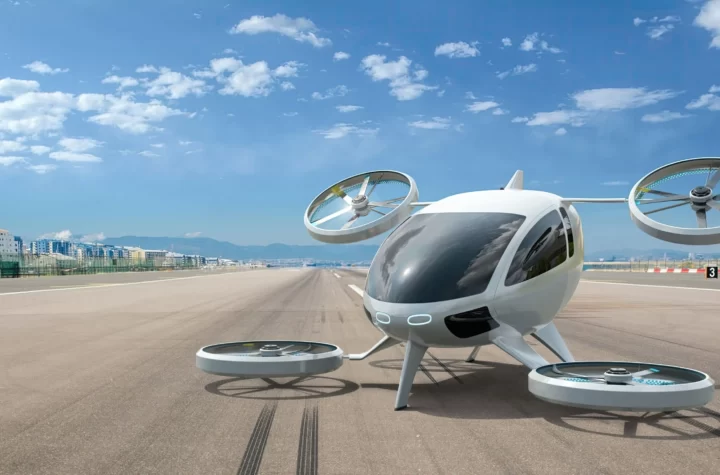Michigan is putting mobility solutions to practical use and real-life testing by focusing on the needs of seniors, persons with disabilities and veterans.
The US$8 million Michigan Mobility Challenge initiative was one of the stand-out features of NAIAS (North American International Auto Show) 2019. “Besides making communities safer, greener and more productive, we believe a new mobility solution should also be a way to uphold a person’s dignity,” said Trevor Pawl, Group Vice President of PlanetM, the state of Michigan’s mobilityfocused brand and business development program. Four grants were announced, which will be used to subsidize a portion of the cost to plan, deliver and monitor demonstration services for a three-to sixmonth period, with the remaining costs being covered from fares, local contributions and other sources.
Projects include a $2.2 million New Autonomous Mobility Vision for Michigan for an autonomous electric shuttle at the Battle Creek VA Medical Center that will extend hours of service to veterans on the hospital campus. A $1 million Southeast Michigan Integrated Platform for Paratransit Services will be an integrated online booking and trip management platform offering a “one-click” experience which will make the scheduling and managing of paratransit trips easier for seniors and people with disabilities. The third project is a $373,782 Team Grand Rapids: Interurban Transit Partnership that will utilize a dynamic ride share app for paratransit services in Grand Rapids to allow trips to be booked on the same day and shorten time spent on busses. The fourth project is a $1.2 million Michigan Universal Vehicle Ecosystem Pilot that is a ride-share platform in the central upper peninsula area that increase accessible transportation options, build community and decrease isolation for those with mobility challenges.
Automotive Industries (AI) asked Governor Gretchen Whitmer how the state is changing its transport landscape through the Michigan Mobility Challenge. Whitmer: Too often, when we talk about mobility, the conversation goes straight to selfdriving cars and autonomous technology of the future. But what we need to be talking about is how the technology and innovation happening in the mobility sector can be impacting and improving lives of Michigan citizens right now. The Michigan Mobility Challenge grants address core mobility gaps for seniors, persons with disabilities and veterans across the state and can offer a blueprint for the rest of the nation on how to look to mobility technology to improve transportation options for citizens who need access to an affordable, reliable way to go to the bank, their doctors’ appointment or the grocery store.
AI: What makes Michigan different? Whitmer: Our highly collaborative environment has played a significant role in setting Michigan apart in delivering meaningful transportation solutions. The Mobility Challenge is no exception, bringing together state departments, regional transit authorities, advocacy groups, local government, educational institutions and technology companies and start-ups working towards the goal of a more accessible state. By the end of the year we will have more than 32 pilot projects representing a diverse set of stakeholders and partners throughout the state.
AI: How else is your administration keeping Michigan at the forefront of the transportation industry? Whitmer: In Michigan we honor traditions, but also believe in the importance of innovation. Improving our state’s infrastructure is one of my top priorities – but that means more than fixing potholes. It also means looking ahead to the infrastructure needs of the future and integrating those solutions into today’s improvements. Michigan is a national leader in supporting worldclass facilities for testing connected and automated vehicles and nationally pioneering policies that allow for operations of those vehicles on public roads. I want to see us carry that leadership into our infrastructure planning as well.
Automotive Industries then asked Kevin Kerrigan, Senior Vice President, Automotive Office at Michigan Economic Development Corporation (MEDC) how the 2019 NAIAS compared to previous years. Kerrigan: NAIAS remains a critical event for automakers, suppliers, start-ups, universities and government organizations to come together to showcase the future of the automotive industry– and it’s only fitting that it happens here in Detroit. That being said, across the board auto shows are evolving and this year’s NAIAS hinted at the big things to come with the move to June 2020.
AI: What was the reaction to this year’s AutoMobili-D? Kerrigan: The importance of a venue like AutoMobili-D at NAIAS is evident with a 46% increase in exhibitors from around the world compared to previous years, according to organizers. With nearly 215 different brands and 65 start-ups featured it continues to grow, particularly with events like the pitch competition and PlanetM Awards. You can see the value also in Match Meetings coordinated by the MEDC that help companies to forge new business and industry connections here in the state.
AI: How does the MEDC encourage companies to explore new transportation solutions? Kerrigan: PlanetM’s Startup Grants encourage mobility start-ups to test and deploy their technologies in Michigan in partnership with communities or at Michigan’s testing facilities, such as the American Center for Mobility. We are also actively engaged in opportunities around hydrogen fuel cells and electrification. During NAIAS, MEDC and the U.S. Department of Energy’s Fuel Cell Technologies Office announced the signing of a Memorandum of Understanding to enhance collaboration on hydrogen and fuel cell research and development.
AI: What new technologies from Michigan have changed cars/transportation? Kerrigan: They include many of the technologies that will ultimately be part of fully autonomous vehicles. Right now, driver assistance, enhanced cruise control, lane departure management, parking assist and many other features are already available to customers.
AI: What is the contribution of the automotive industry to the Michigan economy? Kerrigan: Michigan has been at the forefront of the automotive and manufacturing industries for more than 100 years. We are the place that things get made. So, when technology companies are ready to scale up production, Silicon Valley turns to Michigan. Recent examples include Samsung bringing its first high-volume automotive battery pack manufacturing facility in the United States to Auburn Hills; Waymo choosing Michigan for a new plant to transform vehicles into autonomous transporters for on-theroad test fleets; and KLA-Tencor’s plans to establish a research and development center in Ann Arbor. Just these three projects will create up to 1,300 jobs and attract more than $140 million in private investment.
AI: How have connected car and autonomous vehicle technologies changed the automotive landscape in Michigan? Kerrigan: With nicknames like Motown and Motor City, Detroit is known the world over as the automotive capital of the world. Michigan has now gained global recognition as a center of mobility as well. The state’s transportation industry and R&D capabilities, coupled with its access to innovative talent, smart infrastructure, world-class testing facilities, forward-looking policies/legislature and proximity to the mobility supply chain, makes it the place to be for businesses, researchers and entrepreneurs looking to shape the next transportation frontier. Established firms and start-ups alike have set up shop in southeast Michigan, which is now home to expanding autonomous vehicle research and development ecosystem.
AI: How will the Michigan Mobility Challenge encourage companies to be more inclusive when developing transportation solutions? Kerrigan: This project illustrates the impact of Michigan’s leadership in piloting new technology, as well as a commitment to quality of life here in the state. Mobility can play a key role in increasing accessibility for those who through age, ability or even geography may run into gaps in transportation options














































 Adding intelligence to voice data
Adding intelligence to voice data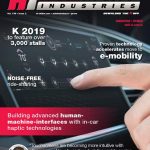 Building advanced human-machine-interfaces with in-car haptic technologies
Building advanced human-machine-interfaces with in-car haptic technologies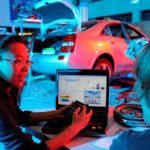 Global testbed for green and smart mobility
Global testbed for green and smart mobility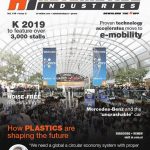 Over 3,000 exhibitors to fill the halls at K 2019
Over 3,000 exhibitors to fill the halls at K 2019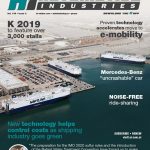 New technology helps control costs as shipping industry goes green
New technology helps control costs as shipping industry goes green Baden-Württemberg supports companies to manage automotive industry transformation
Baden-Württemberg supports companies to manage automotive industry transformation


